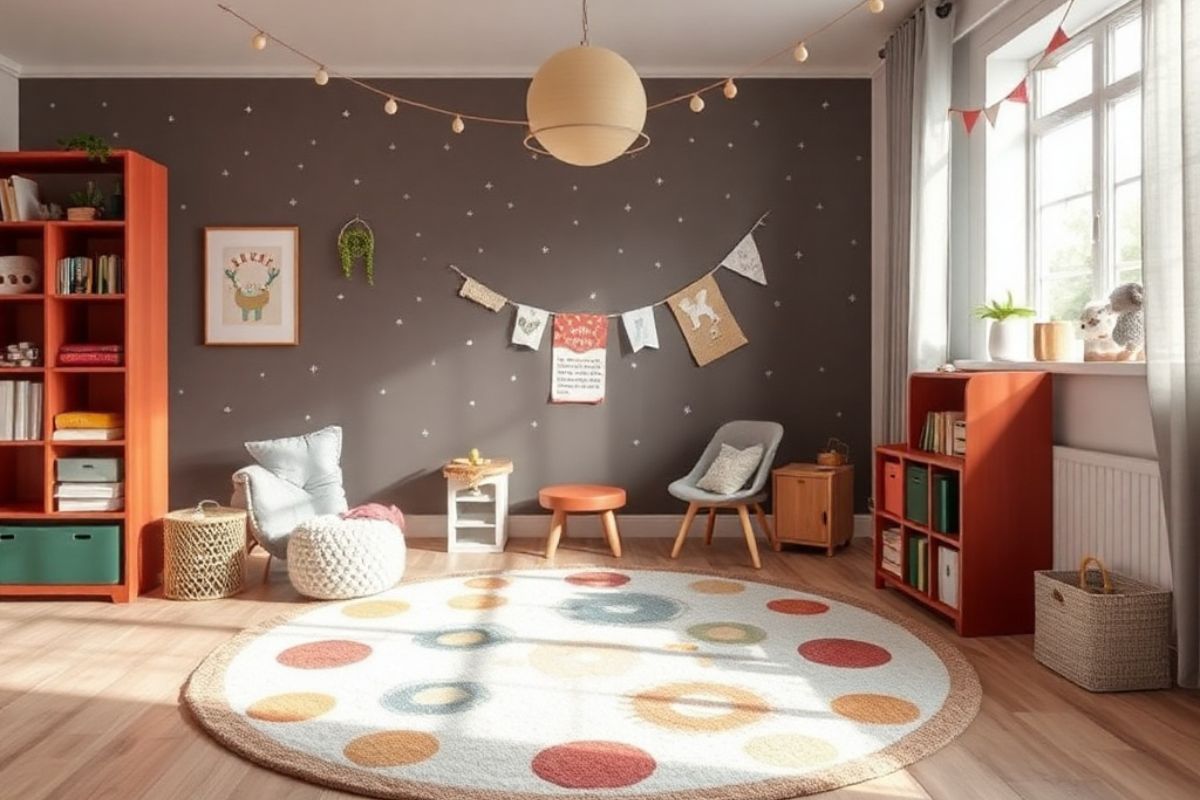Choosing the Perfect Material for Your Kitchen Sink
.jpeg)
Isn't it ironic how we often overlook the importance of our kitchen sinks? We use them every day, yet when it comes to remodeling or designing our kitchens, they're usually an afterthought.
The material of your kitchen sink can greatly influence both its functionality and aesthetics. Whether you're a passionate home cook needing a resilient stainless steel sink or someone who prefers the elegance of marble, there's a perfect material out there for everyone.
Let's dive into this guide where we'll discuss various materials like porcelain, stainless steel, copper, brass, marble, acrylic, and more for kitchen sinks. We'll help you choose just the right one that complements your style while meeting your practical needs.
Stainless Steel Kitchen Sink
Have you ever considered how effortlessly a stainless steel sink would blend with any decor or style while offering durability and easy maintenance? We've noticed that this choice of material shines in modern and industrial-themed kitchens, yet adapts beautifully to traditional or rustic designs too. The silver gleam of stainless steel brings a touch of sophistication, making it an exceptional choice for your kitchen island with sink.
Stainless steel is loved for its resilience against wear and tear. It's resistant to heat, stains, and rust - qualities we all desire in our busy kitchens! Plus, if scratches do occur over time, they blend into the overall finish rather than being glaringly obvious. That's certainly a relief when we're juggling pots and pans around the kitchen.
Ease of cleaning is another significant advantage. With just warm water, mild soap, and a soft cloth, we can keep our stainless steel sinks sparkling clean. No need for harsh chemicals or complicated routines!
Porcelain Kitchen Sink
When you're after a classic, clean look, there's nothing that matches up to a porcelain kitchen sink. It's got that timeless appeal which makes it perfect for almost any kitchen design.
Opting for a porcelain kitchen sink isn't just about choosing an accessory; it's about picking out an integral part of our kitchens that will withstand daily use while still maintaining its charm. So next time you're planning your dream kitchen, remember this - nothing combines durability with timeless elegance quite like a good old-fashioned porcelain sink!
Copper Kitchen Sink
Despite the popularity of stainless steel, there's no denying copper sinks bring a unique charm and warmth to any kitchen setting. Copper has an inherent beauty that adds an element of old-world elegance to your kitchen. Its stunning color variations range from soft pinks to deep browns, creating a distinctive aesthetic appeal.
But it's not just about looks. Copper is also known for its antimicrobial properties, which can help reduce bacteria in your sink – something we all want for our kitchens! It's also extremely durable and resistant to stains and discoloration; however, remember that this material is softer than stainless steel and may dent or scratch more easily.
As with any choice, there are considerations too. Copper requires regular maintenance to prevent tarnish and preserve its shine. Also, good-quality copper sinks are usually expensive due to their labor-intensive manufacturing process. So if you're seeking a stylish upgrade for your kitchen along with added health benefits, consider going with a copper sink.
Brass Kitchen Sink
Just as a copper sink can add a dash of old-world charm to any kitchen, a brass sink sparkles like buried treasure, instantly elevating the space with its rich, golden hue. As we consider this type of material for our kitchen sinks, there's an undeniable allure to brass. It's not just about aesthetics; it's also about durability and longevity.
Brass is a robust alloy consisting primarily of copper and zinc. This makes it incredibly resilient against wear and tear - perfect for those busy kitchens! Its resistance to corrosion means that we wouldn't have to worry about rust stains or deterioration over time. Given how much use our kitchen sinks get, this is certainly an advantage worth considering.
Moreover, brass exudes warmth that can transform even the most modern kitchen into something more inviting. We're talking about a material that blends seamlessly with different design styles from rustic to contemporary.
The downside? Brass isn't cheap. But consider it an investment in your home's value and aesthetic appeal. After all, who wouldn't want their kitchen decked out with such a luxurious centerpiece?
Marble Kitchen Sink
If you're seeking an element of grandeur in your culinary space, a marble sink may just be the ticket. A material steeped in history and luxury, marble is renowned for its beauty and elegance. It's not only visually appealing but also incredibly durable, making it a sound choice for kitchen sinks.
Marble sinks are unique because no two pieces of marble are alike. This means that every sink has its own distinct pattern and coloration. Additionally, marble is heat resistant which allows us to place hot items directly onto the surface without worrying about potential damage.
However, while there's no denying its charm and sturdiness, keep in mind that marble requires maintenance to maintain its luster over time. It can be susceptible to staining and etching from acidic substances found commonly in the kitchen like lemon juice or vinegar.
So if you're someone who loves both style and substance, then a marble sink might just tick all your boxes. Just remember it needs a bit more TLC than other materials!
Acrylic Kitchen Sink
On the other hand, acrylic sinks pull out all the stops when it comes to offering a blend of style, durability, and easy maintenance. They're not just functional; they add a dash of modernity and elegance to any kitchen setup.
Made from a solid surface material that's resistant to stains, scratches, and heat damage, these sinks are built to withstand everyday wear and tear. We love how simple they are to clean—just a quick wipe-down with mild soap and warm water is enough. Their non-porous nature means there's no room for bacteria or mold growth either—an essential feature in the hub of your home.
Available in an array of colors and styles, you can match an acrylic sink with your kitchen decor without breaking a sweat. Don't let the lightweight feel fool you; these sinks have got strength in spades! They're resilient yet flexible—the material can absorb shock from accidental drops without chipping or cracking.
And here's the kicker: compared to other materials like stainless steel or granite composite, acrylic sinks tend to be more budget-friendly too. It's clear as day why we'd recommend considering an acrylic sink for your kitchen upgrade.

Composite Kitchen Sink
But let's not forget about composite sinks, which bring a whole new level of sophistication and durability to the table. They're crafted from a mixture of natural materials like granite or quartz combined with resins. Because of this unique combination, they boast high resistance to heat, scratches, and stains - qualities we all appreciate in our kitchen sinks.
There are two main types of composite sinks: granite and quartz. Granite composite sinks are renowned for their toughness while still maintaining an elegant appearance that can easily blend into any kitchen decor style. Quartz composite sinks, on the other hand, come with exceptional hardness and great resistance against chipping and cracking.
When it comes to color options, you won't be disappointed either. Composite sinks come in a wide range of hues, so you're guaranteed to find one that complements your kitchen design perfectly. But remember, these impressive features come at a price; composite sinks tend to be more costly compared to other sink materials.
Fireclay Kitchen Sink
Made from a combination of clay and glaze, fireclay sinks are known for their strength and resistance to chipping, cracking, and staining. This makes them perfect for busy kitchens where heavy pots and pans are constantly being washed.
One of the greatest advantages of a fireclay sink is its heat resistance. It can withstand high temperatures without getting damaged, making it ideal for handling hot dishes or pouring boiling water directly into the sink.
Fireclay sinks also have a smooth surface that is easy to clean and maintain. A quick wipe with a damp cloth is usually enough to keep it looking spotless.
Another reason why we adore fireclay sinks is their versatility in terms of style. They come in various shapes, sizes, and finishes, allowing you to choose the perfect one that complements your kitchen decor. Whether you prefer an apron-front farmhouse sink or a sleek undermount design, there's a fireclay sink that will suit your taste.
Cast Iron Kitchen Sink
Constructed with durable cast iron, this sink adds a rustic charm to any culinary space. The cast iron material is known for its strength and longevity, making it an excellent choice for a kitchen sink that will withstand the test of time.
Cast iron sinks are coated with a porcelain/enamel finish, which not only enhances their beauty but also protects them from scratches and stains.
One of the key advantages of a cast iron kitchen sink is its heat resistance. You can place hot pots and pans directly into the sink without worrying about damaging the surface. This makes clean-up quick and convenient, as you don't have to wait for your cookware to cool down before washing.
In addition to being heat resistant, cast iron sinks are also very easy to clean. The smooth surface allows dirt and grime to be easily wiped away with just a sponge or cloth. And unlike other materials, such as stainless steel, cast iron doesn't show water spots or fingerprints as easily.
Frequently Asked Questions
What are the maintenance requirements for different types of kitchen sink materials?
We've found that stainless steel sinks require regular cleaning with mild soap and water to prevent water spots. Cast iron sinks, on the other hand, need occasional resealing to maintain their glossy finish.
Composite granite sinks require a bit more care - they should be cleaned with non-abrasive cleaners and sealed annually. Each material has its own set of maintenance requirements that you'll need to consider.
Which kitchen sink materials are most durable and resistant to scratches and stains?
Stainless steel and granite composite are two of the most durable kitchen sink materials. They're not only resistant to heat and stains, but they also withstand scratches well. If you're looking for longevity, these might be your top choices.
Cast iron coated with enamel is another good option as it's highly resistant to all kinds of wear and tear, though it can chip if you drop something heavy on it.
How do I choose the right kitchen sink material to match my kitchen's design and style?
Modern kitchens typically benefit from stainless steel or composite sinks, while traditional styles pair well with porcelain or fireclay. It's like matching shoes to an outfit – you want a seamless blend of form and function.
Can I install a kitchen sink by myself or should I hire a professional?
Installing a kitchen sink is not a simple job and mistakes could lead to costly repairs. So, if you're unsure about any part of the installation process, it's best to hire a professional. They'll ensure everything is installed correctly and securely, giving us peace of mind knowing our new sink is properly fitted and ready for use.









